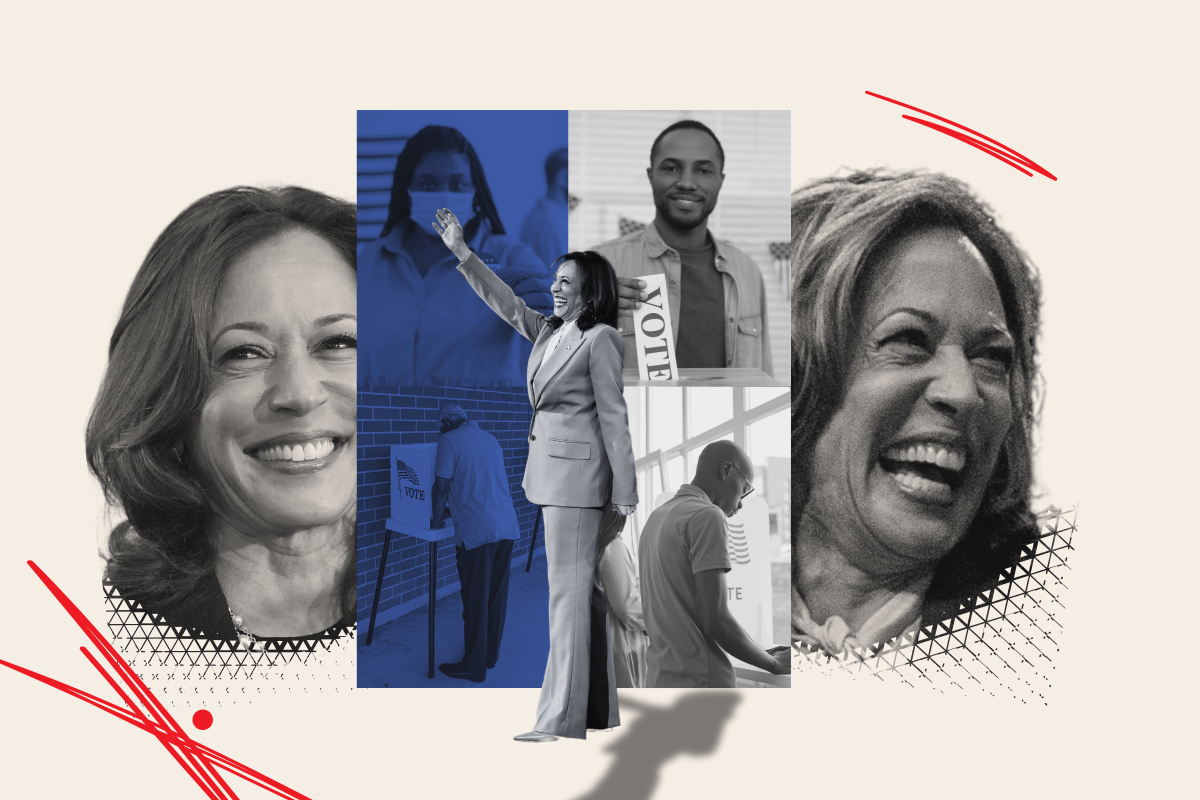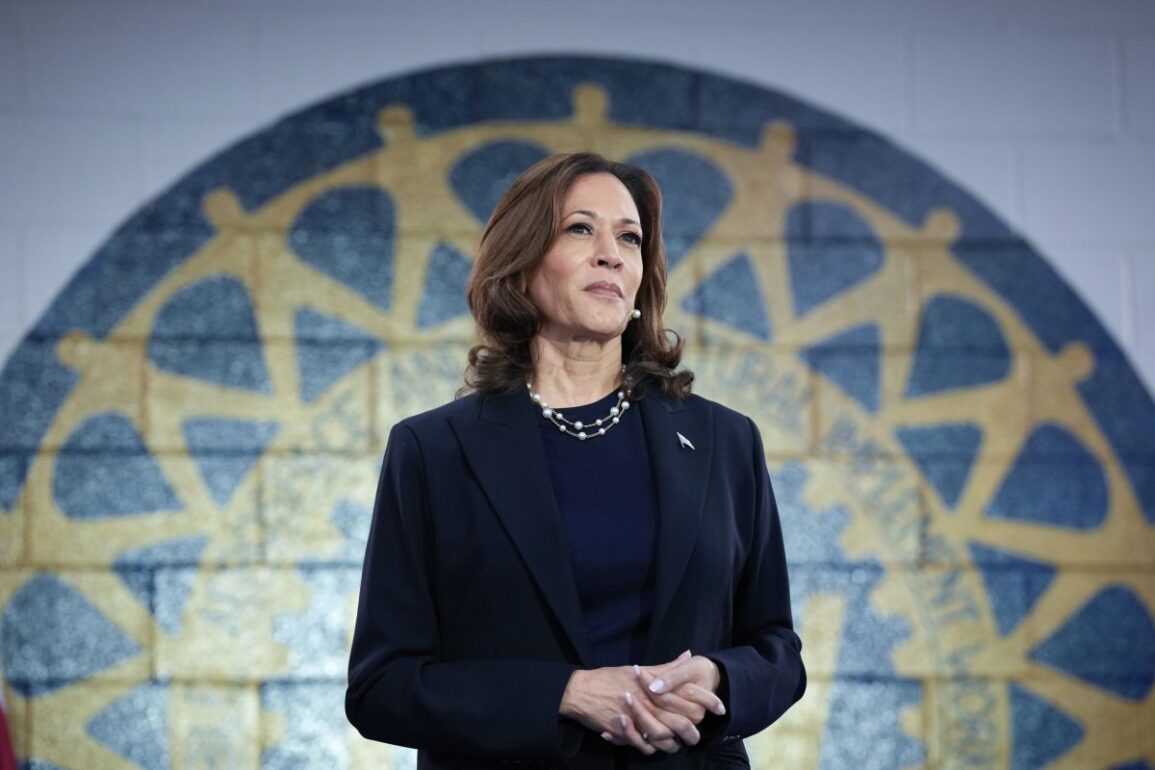Vice President Kamala Harris is on average leading former President Donald Trump among Black voters by 60 points, according to analysis by Newsweek.
Newsweek analysed the latest national poll from pollsters since the start of August that provides a breakdown of voting intention based on race and found that on average, Harris is polling at 76 percent among Black voters while Trump is polling at 16 percent.
Newsweek has contacted the Harris campaign for comment via email.
Democrats have won a majority of the African American vote at every presidential election since 1936, winning 88 percent of the Black vote in 2016 and 87 percent in 2020, according to exit polls.
However, before Joe Biden stepped down, Donald Trump was on pace to win more Black voters than any Republican presidential candidate in history, with a March 2024 poll by GenForward showing he could win as much as 17 percent of the Black vote — the largest proportion for a Republican presidential candidate since 1960.
How Kamala Harris and Donald Trump are polling with Black voters
Since Harris took over as the candidate, polls have looked better for the Democrats, with every national poll aggregator currently having Harris in the lead.
But polling averages suggest that although Harris is regaining ground among Black voters, she is still struggling to reach the levels achieved by her predecessors.
For example, the most recent poll included in Newsweek‘s analysis is the YouGov/The Economist poll conducted on August 17-20. In that poll, Harris has the support of 77 percent of Black Americans, while Trump polls at 14 percent, a lead of 63 points.
Other polls, including those conducted by RMG Research, Beacon Research and ActiVote show Harris could be polling as low as 71 to 73 percent among Black voters. while Trump could be polling as high as 26 percent.
Poll crosstabs such as these can be unreliable when broken down to look specifically at Black voters, or any small demographic group. The smaller the subgroup within the overall poll sample, the greater the margin of error. Polls often include only a limited number of Black respondents, making the results less statistically reliable.
For example, in the most recent poll included from YouGov/The Economist, 1,368 registered voters were asked the question of who they planned to vote for in the November election. Of those, 151 of the respondents identified as Black.
The purpose of Newsweek aggregating these various national polls of Black voters is to reduce this margin of error and provide a more accurate picture of the current voting intention among Black voters.
Can Trump win over Black voters from Harris?
Based on Newsweek’s polling average, Trump is still performing relatively strongly with Black voters against Harris. But for Richard Johnson, a Senior Lecturer in U.S. Politics and Policy at Queen Mary, University of London, the chances of Trump obtaining a record number of Black votes for a Republican presidential candidate is “unlikely” now that Harris is his opponent.
Thomas Gift, Associate Professor of Political Science and Director of the Centre on U.S. Politics at University College London, agreed, telling Newsweek that with Harris as the nominee, “it’s clear that Trump is having a much harder time making inroads within the Black community.”

Democratic presidential candidate U.S. Vice President Kamala Harris waits to speak at a campaign rally at United Auto Workers Local 900 on August 8, 2024 in Wayne, Michigan. Harris is leading Trump among Black voters by at least 70 percent.
Andrew Harnik/Getty Images
However, both Johnson and Gift said that the Trump campaign is making an effort to appeal to Black voters.
“The Trump campaign has made a concerted effort to appeal to Black voters, especially Black men,” Johnson told Newsweek.
“There is also a broader appeal by the Trump campaign to working-class voters of all races. In 2016, Trump broke new ground for Republicans with non-college educated white voters (leading to surprise victories in the upper Midwest). In 2020, Trump made inroads with non-college educated Latinos (leading to surprisingly strong support on the Texas-Mexico border). Now his campaign is trying to win over some non-college educated African Americans,” he added.
“Both parties see Black voters as a key demographic that could tip the election in their favor, especially given the razor-tight margins in key swing states,” Gift said. Swing state polls have been volatile, with some showing Harris and Trump are tied, while other have showed Harris and Trump trailing each other.




Newsweek’s polling aggregate has Kamala Harris on 76% of the Black vote, and Donald Trump on 16%.
Photo-illustration by Newsweek/Getty
Trump has claimed that unemployment was low for African Americans during his presidency, with data from the U.S. Bureau of Labor Statistics showing that it reached a low of 5.3 percent in August 2019. However, the statistics also show that the trend of unemployment dropping began under Obama’s presidency in which unemployment among Black Americans dropped from 16.8 percent in March 2010 to 7.5 percent at the end of his presidency.
Meanwhile, in April 2020, during Trump’s term, unemployment among Black Americans skyrocketed to 16.9 percent in April 2020 during the first wave of the Covid pandemic.
Trump has also appeared at the National Association of Black Journalists in Chicago in July, where he falsely suggested Kamala Harris had misled voters about her race, and has sought endorsements from high profile Black celebrities including Kanye West.
Meanwhile, he has also been accused of making racist comments by his critics, such as comments he made in March when he suggested that Black people like him because he’s been discriminated against in the legal system.
“I got indicted a second time and a third time and a fourth time, and a lot of people said that that’s why the Black people like me,” Trump said while speaking at the Black Conservative Federation’s annual Gala in Columbia, South Carolina.
“Because they have been hurt so badly and discriminated against, and they actually viewed me as I’m being discriminated against,” he added.
“I think that’s why the Black people are so much on my side now because they see what’s happening to me happens to them.”
More recently, there was backlash to his remarks during the presidential debate with President Joe Biden in June in which he suggested that immigrants were taking “Black jobs.” This statement led to questions about what exactly constitutes a “Black job.” When asked to clarify at the National Association of Black Journalists convention in Chicago in July, he responded, “A Black job is anybody that has a job.”
At the Democratic National Convention on Tuesday, former First Lady Michelle Obama referenced Trump’s comments, telling the audience: “Who’s going to tell him that the job he’s currently seeking might just be one of those ‘Black jobs’?”



